RICHIE HARKHAM
Winemaker | Entrepreneur
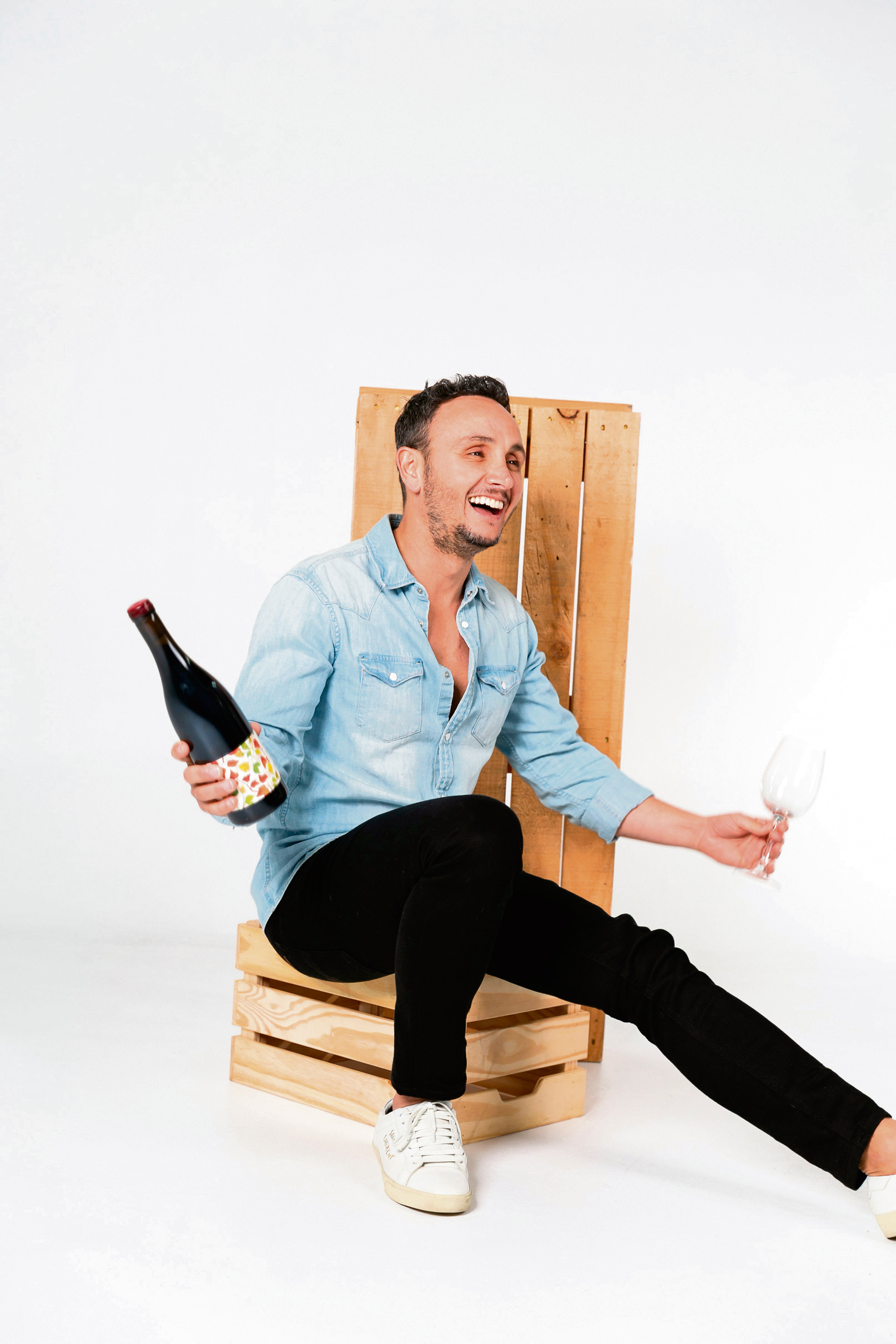
FIFTEEN years ago, Richie Harkham bought a vineyard in the Hunter Valley. While it was the first time the entrepreneurial Sydneysider tried his hand at winemaking, the craft long ran through the veins of his family.
Having fled from Iraq, Richie’s grandmother Aziza Harkham made wine in Zichron Yaakov, part of Israel’s renowned Carmel wine region. Using no electricity and scarce running water in the process, she kept the elixir in terracotta pots to ferment under the house, an ancient winemaking technique used by the Romans.
“I started making the same wines that she made,” tells Richie, “and every few years, I had an artist from South Australia build 300 litre, massive terracotta clay amphoras.
“Every day you hand plunge it. We seal it with beeswax once it finishes fermentation and then we bury it under the ground for six months, the same way they used to make wine thousands of years ago.
“There is a real magic in winemaking, and it is a real blessing.”
Hard work does not intimidate Richie. The youngster started working in a Jewish bakery at 12 years old.
“I love business. I love work,” he enthuses.
“My parents migrated to Australia with nothing, and watching my dad and my uncles – they were in the shmatte trade – buying and selling and doing the deals, it really inspired me from a young age.”
Having studied commerce at university, Richie says that he couldn’t wait to finish the degree and get into business. His first venture was to take old boarding houses and turn them into backpacker hostels.
While Richie has lived “a very diverse, crazy life”, he continues to evolve.
Three years after establishing Harkham Wines, Aziza’s was born, the winery becoming entirely kosher with zero additives or preservatives – “the way that my grandmother used to make it”.
Reflects Richie, “I think that through the journey, I’ve made every single mistake you can make,” recalling the first vintage of shiraz that he spilled entirely.
“Making wine is so tough, especially the wine we make which is always alive, always changing.”
Each year, 30,000 kilograms of grapes are picked by hand. Then there are the very early mornings spent aboard a tractor.
“But what I love about wine, is no two years will ever be the same. It’s a snapshot of time and place, and that’s what excites me so much.
“What happened in that year is all captured in that bottle, and when I reflect back, I just think about how hard I have worked to set up a winery and make good wine.”
But the journey has not been without major adversity.
In 2014, Richie experienced a serious motorbike accident, which saw him receive the world’s first live knee transplant.
After a series of surgeries and long rehabilitation, Richie remembers the first time he arrived back at the vineyard.
While his typical day would consist of picking grapes with the pickers, and climbing up tanks, the reality of his previous life evaporated before him.
“I wanted to help and I was in so much pain. For the first time, I broke down and I cried.
“A large part of my identity was tied up in Harkham Wines, and I was having to deal with the fact that I’d maybe never be able to do that again.”
While Richie’s healing progressed, the challenges continued with a four-year drought, affecting 40 per cent of supply. The recent bushfires saw that number double.
Despite the hardships, Richie’s work has only broadened. He is a motivational speaker, and he has also created the not for profit, Hark Angels, building schools in impoverished communities of developing nations. Nine have been established so far.
“People told me, ‘You’re crazy’, that it’s impossible, don’t even try … Well, everything’s impossible until it is done.
“I’m not a very smart person, I’m not overly talented, but I’m a very hard worker, and if I believe in something, I just never give up.”
DR NIKKI GOLDSTEIN
Sexologist | Relationship expert
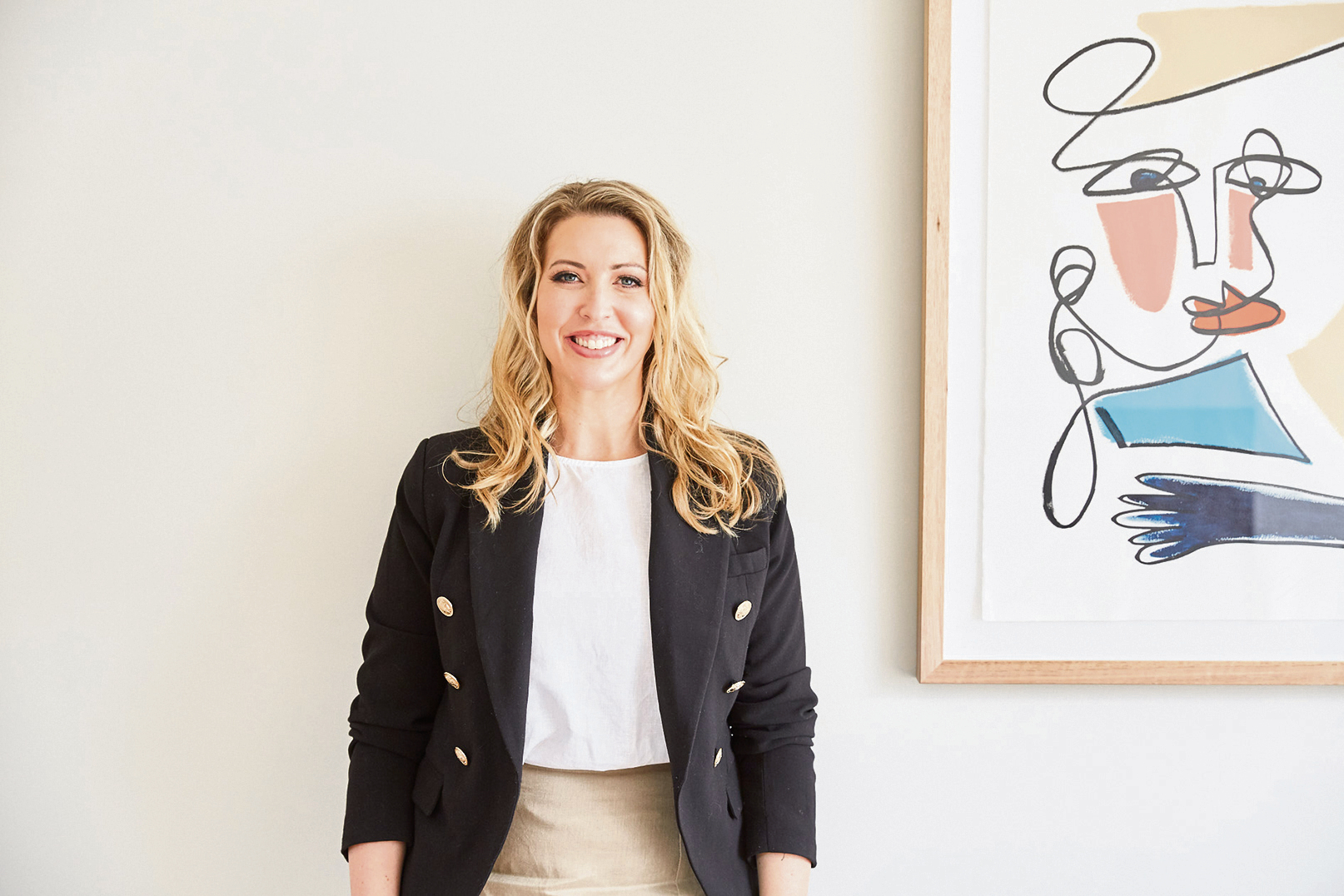
“A LOT of people always joke with me that, oh you must have liked sex, that’s why you studied sexology. No, that wasn’t why I got into it!
“I was always the girl that wanted to help people.”
Nikki Goldstein is an eminent sexologist and relationship expert – but it wasn’t the road she initially intended to follow. At university, Nikki studied psychology, reaching the end of her degree and realising it wasn’t for her. She returned to study counselling and then began work in that field. She was 21 years old “and it spooked me out a little bit”, she says, admitting she didn’t yet have the life skills to deal with some of the things she was hearing.
And so her mum’s best friend made a suggestion, “Why don’t you come and train with me and get into family mediation?”
“So, I was in my early 20s divorcing people for a living, which was a huge eye opener.”
Before long, Nikki grew tired and disheartened of being “a certificate factory”, the destination where broken married couples arrived to have documents signed for court.
“I wanted to be part of something that could help people before they ended up at this point.”
Nikki contemplated, why are we not better educated about relationships? Why are we not told how things can work for us rather than trying to fit into a mould that isn’t right?
“I found that if you went back to the very beginning with so many of my clients who were now splitting up, they were just trying to go along with a life that they thought would make them happy. But they never stopped and actually had a look at what they wanted.
“So, it was full circle.”
Nikki recalls when she made the decision to study the doctorate of human sexuality in San Francisco. She picked up the phone to tell her parents.
“Dad was like, that’s great – he’s all for education. Mum said, what are you going to do with that degree?”
But Nikki had already begun studying part of the program from Australia and knew that she loved it. “It’s kind of that thing of, find what you love first and then you’ll make a living out of it.”
She also fell in love with the open-mindedness of the program and its diversity.
“You were studying alongside doctors and gynaecologists – and former or current sex workers that have a social work degree.
“It was very different to my previous academic years because they taught human sexuality in the way that human sexuality should be taught; their philosophy was, there’s nothing that you shouldn’t have access to or shouldn’t see.
“That sometimes was quite confronting and scary. But the idea was that you can’t pick and choose what you want to look at being a sexologist.”
Nikki says the interplay of the taboo and stigmas associated with sex set against the fact that it is a large part of the lives of many adds to her interest and curiosity in the subject.
And one of those taboo aspects is education around sex and ageing, tells Nikki.
“There’s so much emphasis on when you’re younger, developing and exploring your sexuality, and I think people forget about what happens when you are empty-nesters, you have no kids at home and sex is not what it used to be, but there’s still a want and a desire and a need to connect and feel pleasure.
“It’s just a matter of having these conversations and putting that information out there and normalising it.”
Indeed, Nikki aims to do just that. She has authored a book, is the host of two podcasts, owns an online adult shop, appears regularly in the media, and has an extensive social media following.
“I never thought this would be my life!”
MELISSA ABRAHAMS
Medicine weaver | Alchemical healer
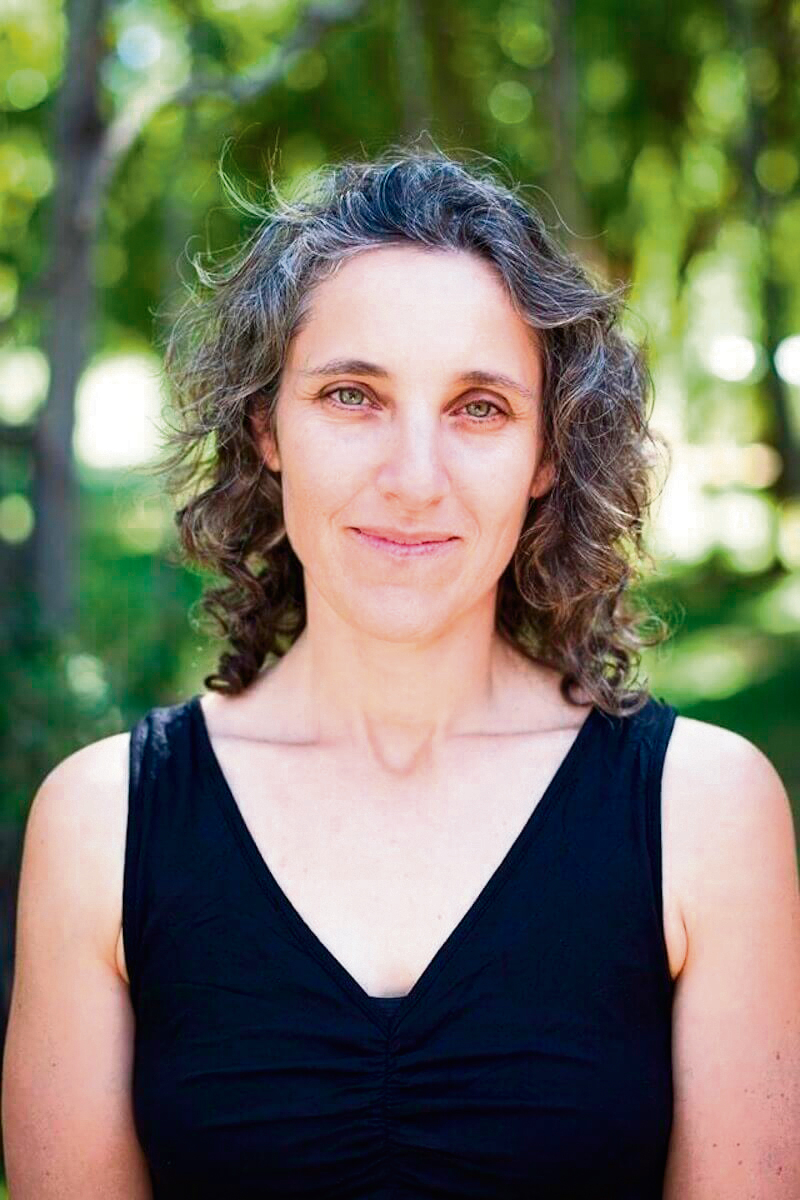
IN another life, Melissa Abrahams was a lawyer. But it was a path on to which she stumbled almost by accident.
Having completed her Bachelor of Arts in psychology, Melissa applied for a graduate diploma of education, with a hope to teach English. But when the university misplaced her application, her mother suggested she sit for the law entrance exam instead.
“Being Jewish, I’ve got a long stream of lawyers behind me,” she smiles, “So, I sat it very arbitrarily and got in, then it was this kind of thing of, if you get into Melbourne Uni law school, how can you say no?”
In Melissa’s first year of law, the famous Mabo decision was handed down, crystallising the fate of the 22-year-old: “I knew that for me, the area in which I wanted to work was with Aboriginal people or First Nations people”.
And immediately after her articles, as a first-year solicitor Melissa found herself at Sydney’s Public Interest Advocacy Centre, running Stolen Generation cases from around Australia. With no experience, she was overseeing seven other solicitors based in every state.
“It was very, very, very hard,” Melissa reflects with a pause. “Things were really different. We didn’t know about post-traumatic stress disorder. We didn’t know about vicarious trauma. I was a first-year and second-year solicitor, and I had no supervision.
“It was incredibly stressful and I kind of, I suppose, in retrospect, had a bit of a breakdown.”
With her 29th birthday soon approaching, Melissa vowed to herself that she would not cross the threshold into her 30th year in this state. She resigned on her birthday.
“The upshot was, I was quite traumatised by the experience. I read a lot of stuff that was really terrible.”
A few jobs down the track, Melissa found herself working at a bookstore – “and meditating a lot, and doing a lot of yoga”. They were practices Melissa had taken on since her early 20s, but they had new resonance.
Before too long, the next step became clear to her: she needed to go to India. She mulled over the idea for a few weeks before surrendering and buying herself a ticket, spending the next six months in northern India.
After undertaking a silent retreat in Dharamasala, Melissa found herself in a small village, deep in Himachal Pradesh.
“There were 35 Indians, me and an Israeli, of course,” she tells.
“It was the monsoon and all the roads were down. There was no electricity, no radio, no TV, no newspapers, no mobile, no internet. It was a really great experience to be so alone.”
It was also a time of great introspection – “We really dropped into a very deep magical space and learned a lot.
“And from then on, I knew I wanted to work as a healer.”
After Melissa’s experience, she began to study acupuncture, living in London for a time when her husband (ABC journalist Rafael Epstein) was transferred as a European correspondent. When they returned, she set up her practice, and later undertook studies in Shamanic Womancraft. The culmination of the training is four days spent alone, fasting in the wilderness.
“It’s a very traditional ritual, practised by many different communities around the world,” tells Melissa.
“On the third night, I was awake drumming and asked for a vision and what landed on me was this title, medicine weaver.”
But what does that mean?
“I practise a number of different types of medicine – obviously not Western medicine, but Chinese medicine and some forms of energetic and spiritual medicine.
“The term ‘weaver’ is this beautiful practice and title that women throughout history have used in the practical sense of actual weaving, but also the metaphorical sense, a healing practice of bringing together disparate threads and weaving them as one.”
Sometimes that looks like psychotherapy, and sometimes it looks more like traditional Chinese medicine, explains Melissa.
“But in every session, there is a weaving together of my energy, the client’s energy, all the other energies that are present in the room, to foster healing.”
Her work explores the physical manifestations of ailment or illness, and its connection to the emotional and mental, unpacking the “web of factors” that contribute to it.
And with many Jewish clients, Melissa says that the intergenerational collective trauma of the Holocaust bears a unique impact.
From a young age, Melissa explains that she was driven to heal.
“My sole mission is tikkun olam. What it looks like, whether it’s a lawyer or medicine weaver, it’s all same, same. It’s all working to make the world a better place.
“So, I was a good Jewish girl, married and a lawyer and what I did seemed mad. But to me, the ‘no’ of the legal career was so clear, and the ‘yes’ of going to India was so clear. What looked like courage from the outside, to me, was just necessity, it was just what happens next.”
BENYOMIN CYLICH
Brewery operator
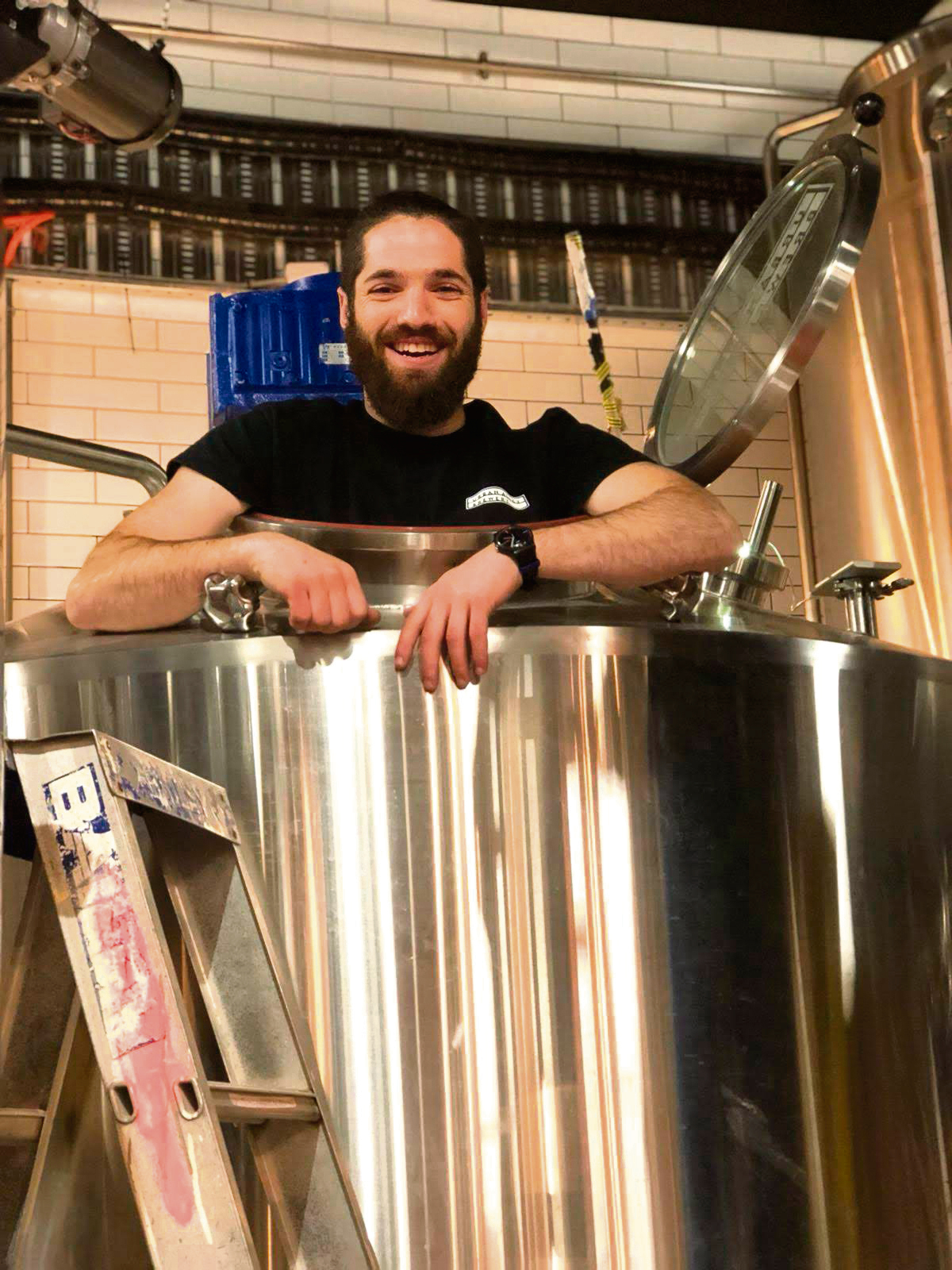
“YOU should go to university,” Benyomin Cylich was told by the parents of friends after graduating high school.
“You’ve got to go and study something,” they implored.
But Benyomin knew from a young age that he would not have a typical career.
“I wasn’t going to have a desk job. I knew that was never going to suit me,” he shares.
While Benyomin says he never really felt pressure, he did always question himself as to where he would end up.
“And here I am, brewing beer,” he says with delight.
But the path forward did not lead straight to the keg. Benyomin tried his hand in other areas first, studying aircraft mechanics, and a year of firefighting in America; he worked as a bike mechanic, a swimming instructor and disability carer. And he served in the Israel Defence Forces for 18 months.
It wasn’t until his return to Melbourne after the army, that he got a job at a bottle shop. They sold over 300 craft beers, and at the end of each shift, he was given a different beer to take home every day.
“I had an empty bookshelf and I would rate the beers based on what I thought of them. So, there were five levels on the shelf – one star, two stars, etc.
“I filled the bookshelf with my beer rankings and then I figured, I obviously like a certain type of beer – maybe I should give home brewing a crack, and try to make my own flavours.”
He reached out to a beer brewing friend who offered some tips – and before he knew it, Benyomin was offered a job too, as assistant brewer at a craft beer brewery.
“When I first started working full time as a brewer, being able to see into the brewpub, and watch people enjoying a beer at the bar, and knowing that I personally created that beer, that was bloody awesome,” tells Benyomin.
Three years later, Benyomin is the brewery operator at Hawkers Beer, in the Melbourne suburb of Reservoir. Each year, he helps to produce around three million litres of beer.
Based in the cellars, Benyomin oversees the brewing process which takes six to eight hours, and then the beer sits in tanks anywhere from two weeks to four weeks, depending on style.
“And there are many things that go on in that time, like temperature control, doing lab tests, dry hopping the beer, adding hops for aroma, if there is any flavouring additive, and then after it gets carbonated and packaged.”
So, what’s the key to a good beer?
“Time, creativity and similar to wine, complexity and balance of flavour,” tells Benyomin.
“If you put a lot of passion and love into something, I feel like it turns out pretty good. You’ve got to take good care of it – like a baby!”
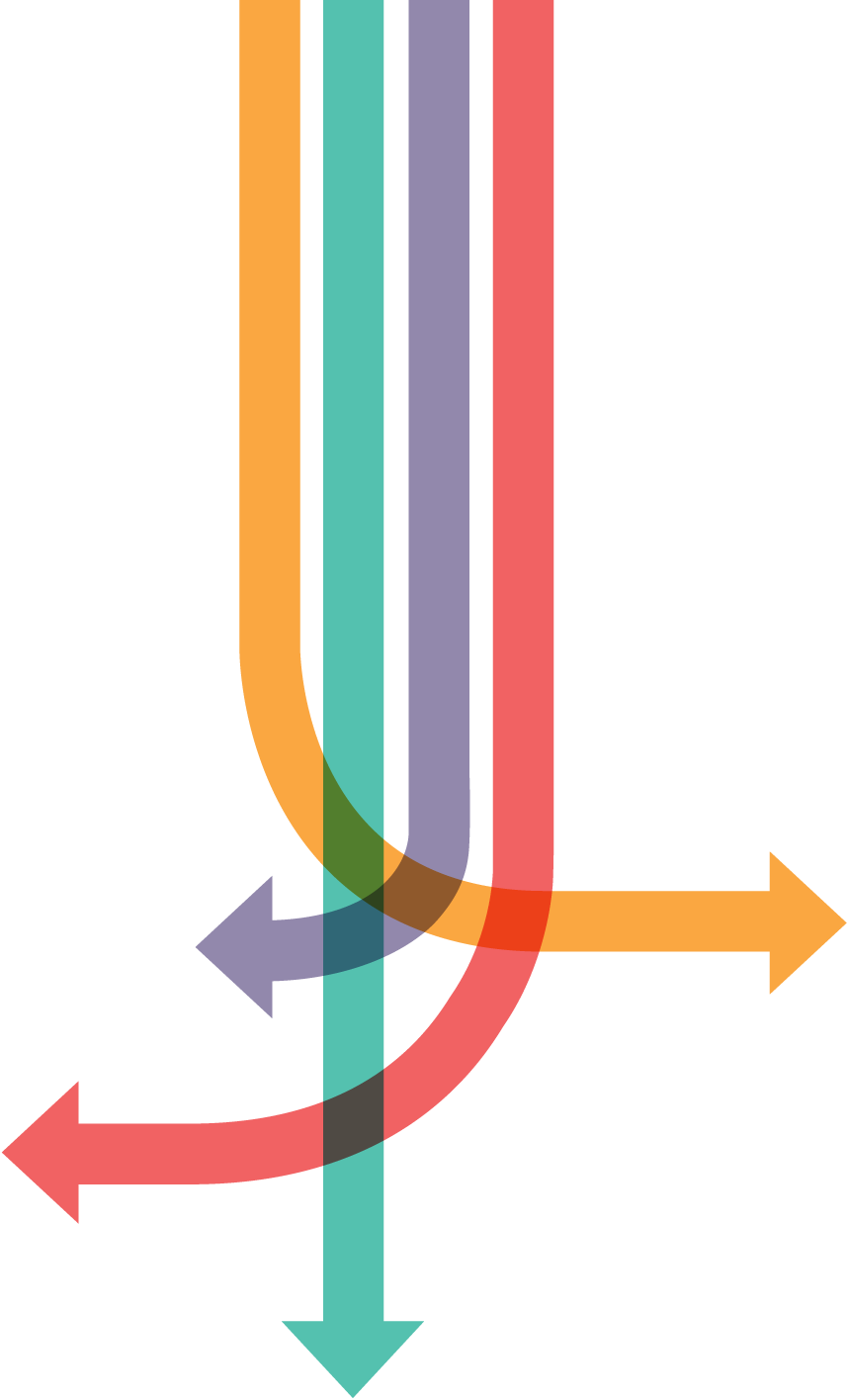

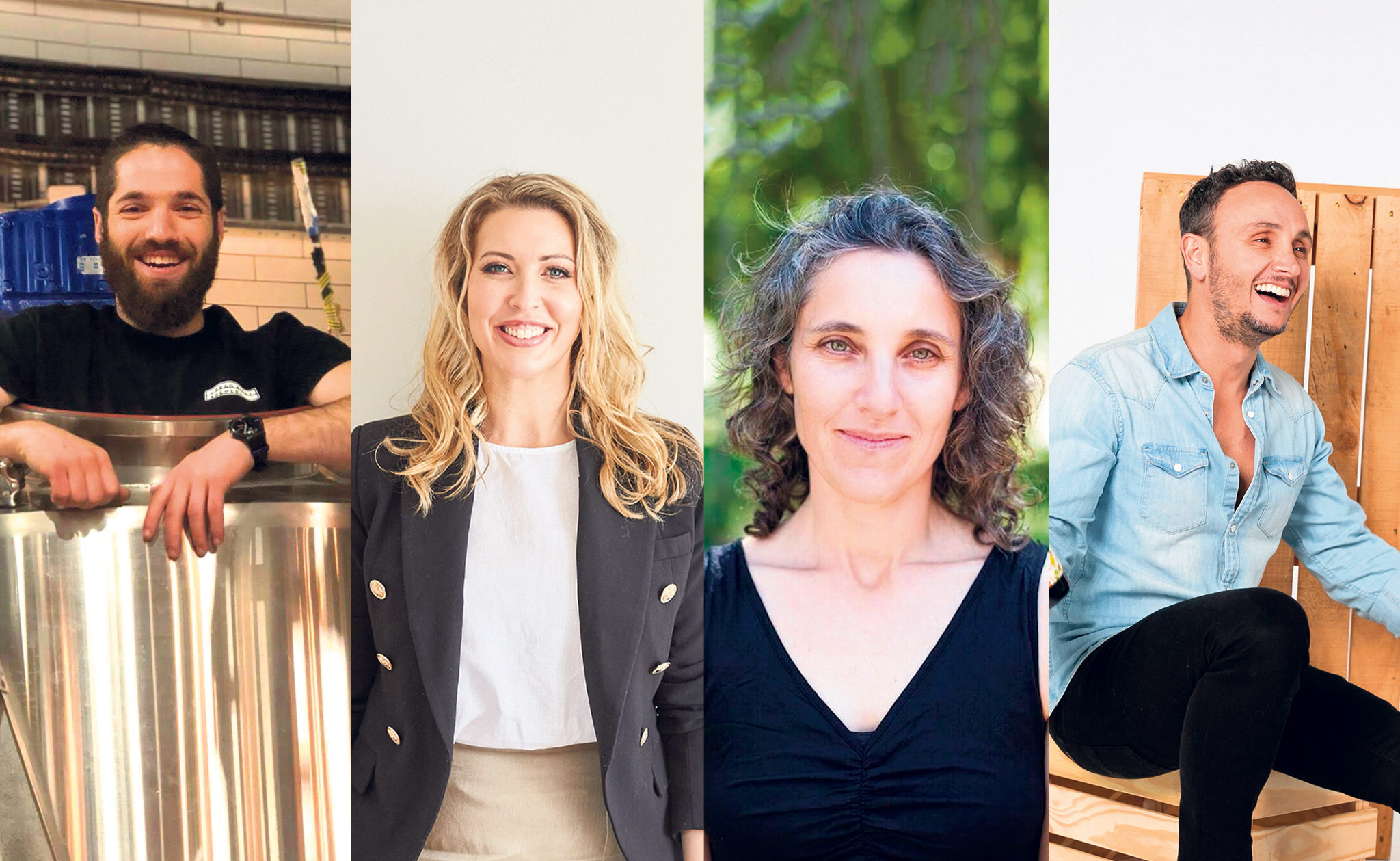
comments